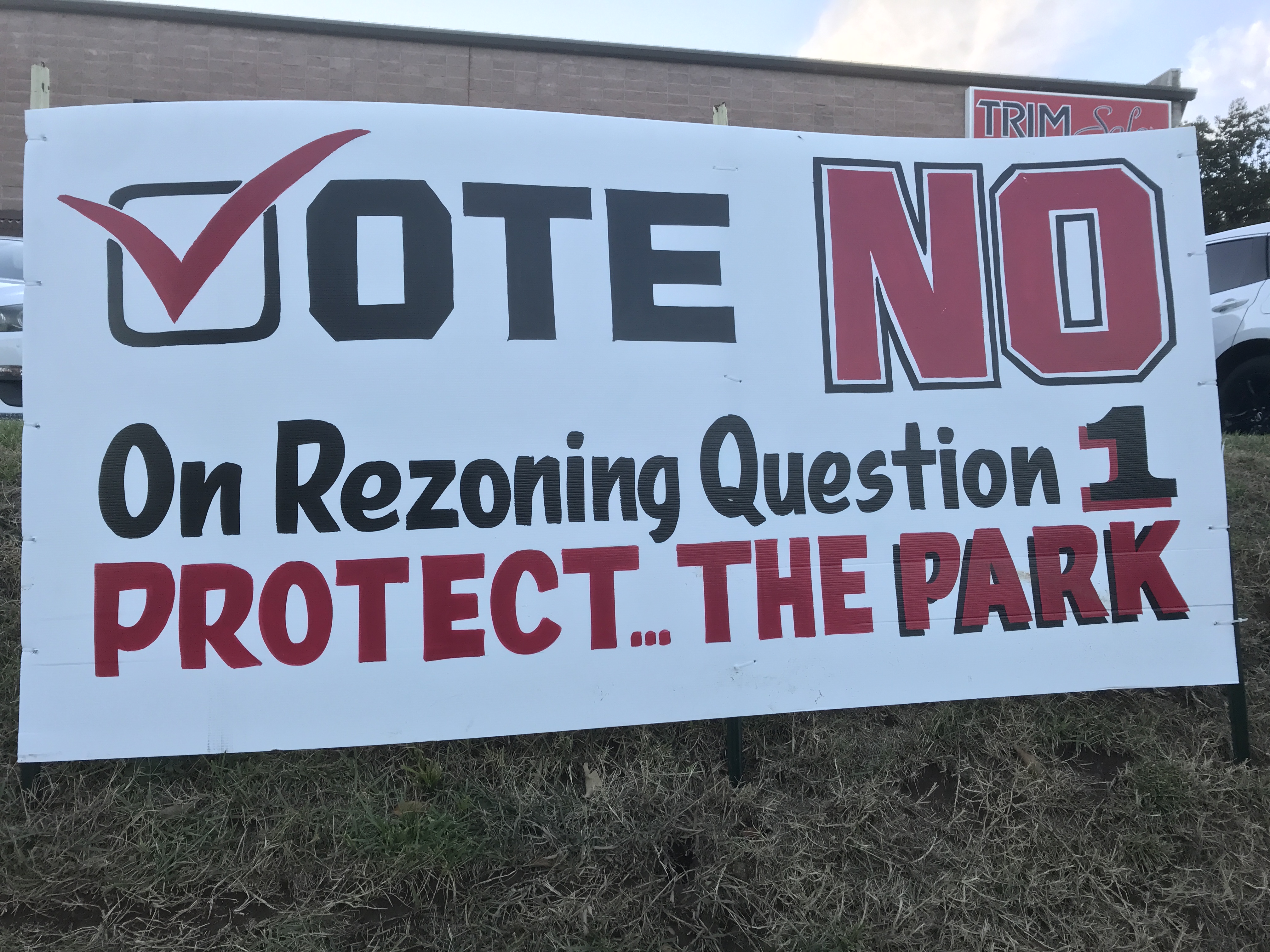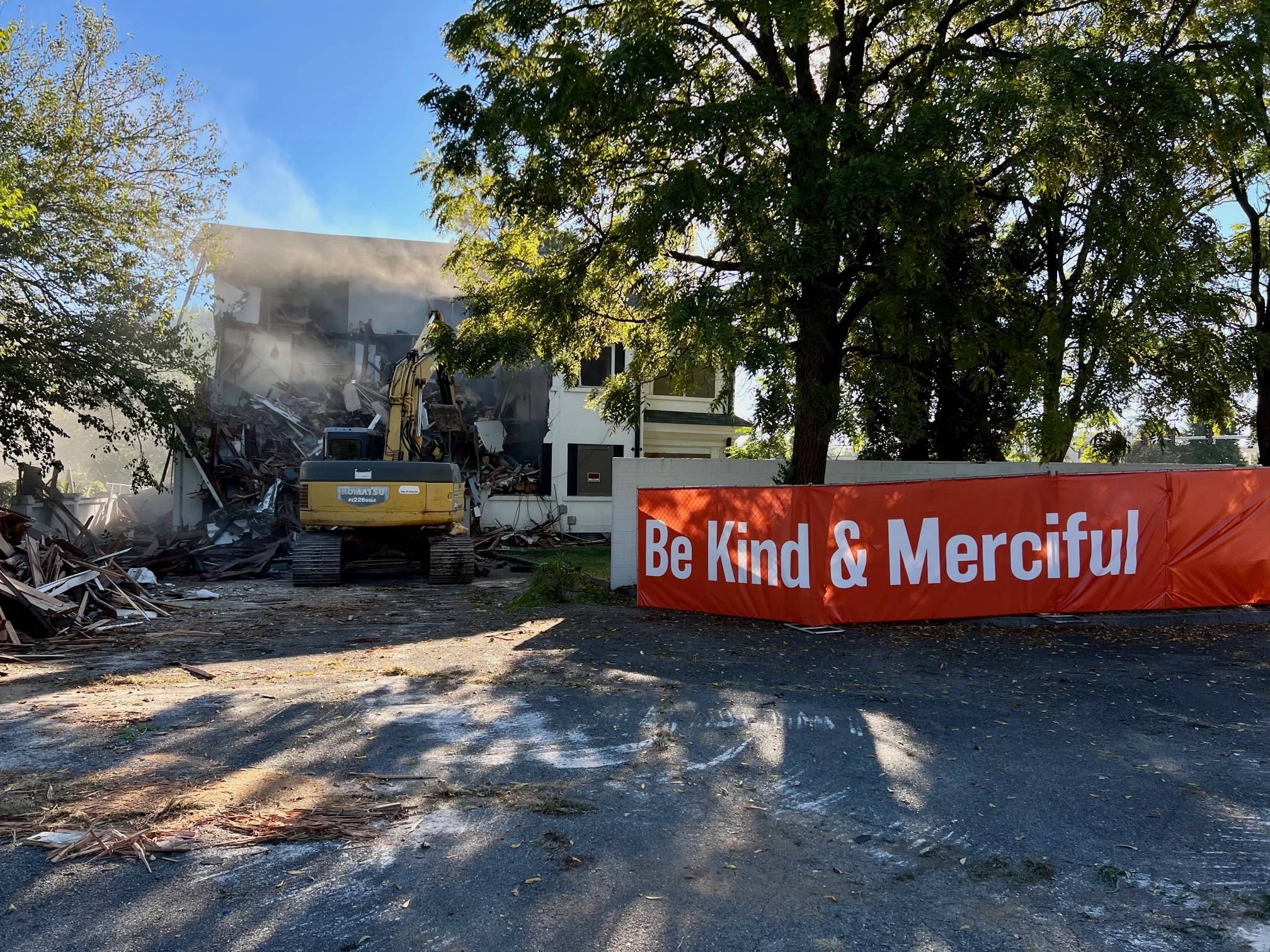OPINION |
When I see the Question 1 “Vote Yes” and “Vote No” roadside signs, I fear this is a precursor to nasty campaigns complete with dreadful and dishonest mailers the next time voters across the city are called upon to decide a zoning matter.
I see a future of escalation.
A few years from now, will we yearn for the good old days when there were just roadside signs?
I am not actually taking a position on whether this particular development is a good idea or not. But in my opinion, taking zoning questions to a public vote is terrible public policy.


Developer clearly hasn't won over everyone
Question 1 will be decided on Nov. 8. It seeks to overturn a zoning change approved by the city's volunteer Planning and Zoning Commission, city staff and the City Council, which usually has the final say. But not this time. Although the zoning change was originally approved, it's since been challenged by residents who organized petitions to stop the development. This eventually led to putting the issue on the ballot.
If you're looking for a news story on this instead of an opinion column, colleague Rance Burger covers the details and the history of what's known as Ballot Question 1 in this in-depth Daily Citizen story.
The development is in Galloway, across from Sequiota Park. The developer over the years has met with some Galloway residents and, in turn, altered his plans.
Developers Mitchell and Amanda Jenkins clearly have not won everyone over. Some residents say he has done little to address their concerns about water run-off and four-story construction with retail on the first floor and apartments on the others.
A “Yes” vote allows the project and the zoning change to go ahead. A “No” vote means the opposite.
How much control should a voter have over someone else's property?
I do not fault Galloway residents for pursuing this to an election. It was an option available to them. My point is that this is a terrible option that should not exist.
How much control should I have as a voter over what someone else does with their property?
Especially after the owner has spent time (years), and money (thousands) — and followed the rules and received city approval?

On a micro level: If I follow the rules and obtain approval to erect a shed in my backyard, should people on my block then get to vote on it?
And if they vote no, was it because they actually didn't like my shed or was it for reasons that had nothing to do with my shed? Maybe they didn't like a column I wrote.
Similarly, on Nov. 8, how many no votes will there be because some people dislike all developers? Or dislike all developments?
Should we have the referendum ability to recall elected officials? Yes.
Should we all get together to decide zoning matters? No.
Are horns coming from the developer's head?
Big bucks are spent on development projects by companies. Some of the people who oppose them also have substantial financial resources.
I predict that if the practice of voting-on-zoning continues, there will be political-style mailers as garish and dishonest as the ones sent by political action committees (PACs) on behalf of candidates.
On one side of the issue will be, for example, a fuzzy picture of a developer with a twisted smile (are those horns coming out of his head?) and photoshopped suitcases bursting with cash.
Or it might be a mailer with a photo of a village reduced to rubble with the warning — in letters dripping with blood: “This is the future of your neighborhood without this development.”
A zoning vote for National and Sunshine?

I think it is disingenuous to say that this Galloway election is a fluke — that there won't be more citywide votes on zoning matters because this appears to be the first one.
If the city's decision is overturned here, there certainly will be more.
For example, if the zoning is changed from residential to commercial at the northwest corner of National and Sunshine, I believe residents of University Heights would find a way to take the matter to a citywide vote.
If you're not caught up on that zoning dispute, follow Daily Citizen's latest coverage here.
Zoning matters are already reviewed by people not shouting at each other
On Nov. 8, some people might vote yes because they trust community leaders such as Jim Anderson, former president of the Springfield Area Chamber of Commerce (and a member of the Hauxeda's board of directors); Clif Smart, president of Missouri State University; and Hal Higdon, chancellor of Ozarks Technical Community College.
These three have campaigned for a yes vote and argue that a no vote would scare developers away from Springfield because they would fear investing in a project only to have it ultimately rejected in a citywide vote.
I don't know if that would happen. It sounds plausible.
When it comes to zoning matters, I believe city staff, the volunteers on planning and zoning and elected officials have already reviewed zoning and development issues down to details such as setback, tree size, water run-off and driveway widths. They welcome input from those in the neighborhood.
Most importantly, they do this dispassionately. They aren't yelling at one another, calling each other liars, and they don't believe all developers are bad or all developers are good.
They consider the laws and the plans and the surrounding neighborhood.
If we're going to vote, why elect and appoint people to weigh these issues?
If the final say on a zoning matter is going to be a citywide vote, why are we paying city planning and zoning staff?
Why do we ask civic-minded citizens to serve on the Planning and Zoning Commission?
Why do we elect city council members to weigh these issues?
Asking me, a Springfield resident, to vote on a zoning matter and a development plan is like asking me to cast a vote in an alderman's race in Marionville.
It's an overreach.
Others have already spent far more time reviewing the matter than most. They have taken into account the concerns of residents, the property rights of the developer and the community value of Sequiota Park.
I don't believe that issues like this are clarified in citywide votes. I think the opposite.

